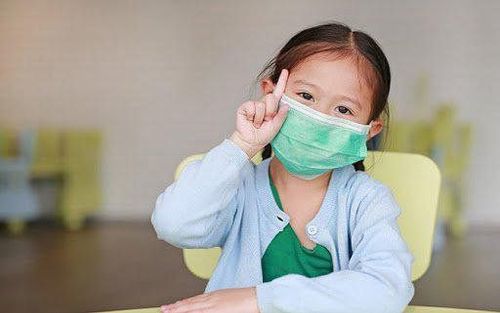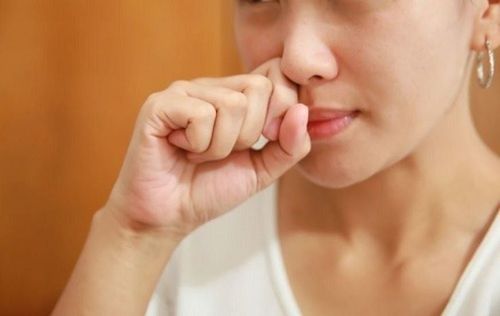This is an automatically translated article.
Pollen allergies can disrupt your daily activities with sneezing, stuffy nose, and watery eyes. Lifestyle changes and medication can help relieve your symptoms.1. What is a pollen allergy?
Pollen is one of the most common causes of allergies in the United States. Pollen is a very fine powder produced by plants, flowers, and weeds to fertilize other plants of the same species. Many people have an adverse immune response to pollen inhalation.
The immune system normally defends the body against harmful invaders - such as viruses and bacteria - to avoid illness. In people with pollen allergies, the immune system mistakenly identifies harmless pollen as a dangerous intruder. It begins to produce chemicals to fight pollen.
This is called an allergic reaction and the specific type of pollen that causes it is called an allergen. This reaction leads to many unpleasant symptoms, such as:
Sneezing Congested nose Watery eyes Some people have pollen allergies year-round, while others only have them at certain times of the year. For example, people who are sensitive to birch pollen often have increased symptoms in the spring when birch trees bloom.
Similarly, people with ragweed allergies are most affected in late spring and early fall. About 8% of adults in the United States have hay fever, according to the American Academy of Allergy, Asthma, and Immunology (AAAAI).
According to the National Health Interview Survey conducted by the US Department of Health and Human Services, approximately the percentage of American children diagnosed with hay fever in 2014. Allergies are unlikely to go away once. when it has grown. However, symptoms can be treated with allergy medications and shots.
Making some lifestyle changes can also help reduce symptoms associated with pollen allergies. Pollen allergy may also be called hay fever or allergic rhinitis.
2. What are the types of pollen allergies?
There are hundreds of species of plants that release pollen into the air and cause allergic reactions. Here are some common causes:
2.1. Birch pollen allergy
Birch pollen is one of the most common springtime airborne allergens. When the plants bloom, they release tiny pollen grains that fly in the wind.
A single birch tree can produce up to 5 million pollen grains, with many traveling distances up to 100 yards from the parent tree.
2.2. Oak pollen allergy
Like birch trees, oak trees send pollen into the air during spring. Although oak pollen is considered mildly allergenic compared to pollen from other trees, it stays in the air for longer periods of time. This can cause a serious allergic reaction in some people with pollen allergies.

Dị ứng phấn hoa sồi gây ra phản ứng nghiêm trọng ở một số người
2.3. Grass pollen allergy
Grass is a major cause of pollen allergies during the summer months. It causes some of the most severe symptoms and is the most difficult to treat. However, the AAAAI reports that allergy shots and allergy pills can be highly effective in alleviating the symptoms of grass pollen allergy.
2.4. Allergy to ragweed pollen
Ragweed is the main culprit for allergies among weed pollens. They are most active between the late spring and fall months.
However, depending on the location, ragweed can begin to release pollen as early as the last week of July and continue into mid-October.
3. How is pollen allergy diagnosed?
Your doctor can usually diagnose a pollen allergy. However, they may refer you to an allergist for allergy testing to confirm the diagnosis.
An allergist is a person who specializes in the diagnosis and treatment of allergies. The allergist will first ask you about your medical history and symptoms, including when they started and how long they've persisted.
Make sure to tell them if symptoms always appear or get better or worse at certain times of the year. An allergist will then perform a skin prick test to identify the specific allergen causing your symptoms.
During surgery, an allergist will prick different areas of the skin and introduce small amounts of allergens. If you are allergic to any substance, you will experience redness, swelling, and itching at the site within 15 to 20 minutes. You may also see a raised, rounded area that looks like a rash.
4. How is pollen allergy treated?
As with other allergies, the best treatment is to avoid the allergen. However, it is very difficult to avoid pollen. You can minimize your pollen exposure by:
Stay indoors on dry, windy days Have others take care of any gardening or yard work during peak season Wear a dust mask when high levels of pollen (check the internet or the weather section of your local newspaper) Close doors and windows when pollen counts are high

Đeo khẩu trang để tránh phấn hoa
4.1. Medicine
If you still experience symptoms despite taking these precautions, there are several over-the-counter (OTC) medicines that can help:
Antihistamines, such as cetirizine (Zyrtec) or diphenhydramine ( Benadryl) A decongestant, such as pseudoephedrine (Sudafed) or oxymetazoline (Afrin nasal spray) An antihistamine and decongestant combination medicine, such as Actifed (triprolidine and pseudoephedrine) and Claritin-D (loratadine and pseudoephedrine)
4.2. Allergy shots
Allergy shots may be recommended if medication is not enough to relieve symptoms. Allergy shots are a form of immunotherapy that involves a series of shots of an allergen. The amount of allergen in the shot increases over time.
These injections modify your immune system's response to the allergen, helping to reduce the severity of your allergic reactions. You may be in complete remission within one to three years of starting allergy shots.
5. Home Remedies
Some home remedies can also help relieve pollen allergy symptoms. Includes:
Using a squeeze bottle or neti pot to flush pollen from the nose Try herbs and extracts, such as pa-free butter or spirulina, Take off and wash worn clothes outside Drying in the dryer instead of drying clothes outside Use air conditioning in cars and homes Invest in a filter or portable high-efficiency granular dehumidifier (hepa) Vacuum regularly with a vacuum cleaner that can hepa filter You should tell your doctor if your symptoms are getting worse or if your medication is causing unwanted side effects. Also, consult your doctor before trying any new supplements or herbs as some can affect the effectiveness of certain medications.
Please dial HOTLINE for more information or register for an appointment HERE. Download MyVinmec app to make appointments faster and to manage your bookings easily.
Reference source: healthline.com













